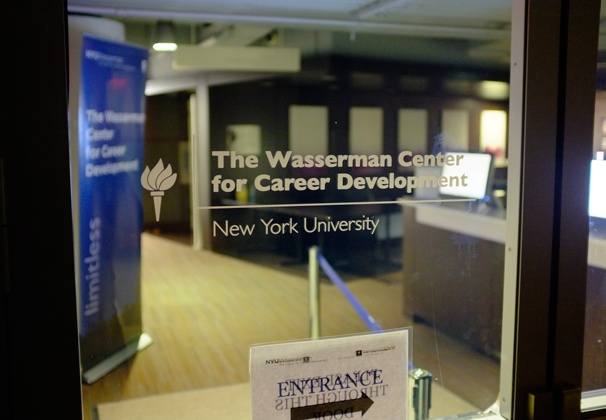Students start petition to remove some unpaid internships from CareerNet
April 30, 2013

Last week, two NYU students started an online petition to stop the Wasserman Center for Career Development from posting certain unpaid internships.
Tisch sophomore Christina Isnardi, one of the organizers of the petition, defined illegal unpaid internships as those that either treat interns as full-time employees who would normally be paid, or require them to perform menial labor with no educational value.
In his article in the New York Law Journal, “Unpaid Internships Under Legal Scrutiny,” NYU professor of law Samuel Estreicher said that unpaid internships should not simply benefit the employer, but also provide interns with skills that will benefit them in a specific field.
“To satisfy Labor Department concerns, managers should be reminded that unpaid interns will be joining their department to learn and not as much to supplement the regular work force,” he said in the article.
However, the students are not against all unpaid internships.
“There are plenty of unpaid internships on CareerNet that are perfectly legal under existing labor laws and give valuable, professional experiences to interns,” Isnardi said. “These include unpaid internships for non-profits and government, and internships at for-profits that follow the criteria outlined in the Fair Labor Standards Act.”
Under the FLSA, the U.S. Department of Labor developed a list of six factors to determine if an intern should be paid minimum wage.
Professor Tom Gerety agrees that the primary benefit of the internship must be for the intern.
“A good internship should have definite training and educational objectives,” Gerety said. “It should involve work, of course, but not work that the employer would otherwise have to hire someone for.”
Wasserman assistant vice president Trudy Steinfeld said the center understands the students’ concerns and will always advocate for students.
“We think that students in most cases should be compensated whenever possible, but there are situations and industries that do not commonly pay for internships,” Steinfeld said.
However, she said Wasserman does not want to take away opportunities for students.
“We have so many other students in certain fields that if they do not intern it’s very hard for them to break into those industries,” Steinfeld said.
Steinfeld explained that unpaid internships can help students secure jobs in the future, and freshmen especially want opportunities to gain experience. Wasserman recognizes the concerns about certain internships, though, and has a system that checks whether internships are credible. NYU is also part of a network with other top universities that advise each other on which internships are reputable.
But, Isnardi said Wasserman should be more careful in distinguishing between different unpaid internships.
“Many students, eager to gain experience in their fields, willingly take full-time unpaid internships without knowing or caring that their labor is being abused, or that their rights are being violated,” she said. “I’m hoping to put an end to this abusive practice by enforcing the labor laws that already exist.”
As of press time, the petition has around 450 signatures. Isnardi said their goal is to have 1,000 signatures by finals week. After that, they will present the petition to Wasserman.
A version of this article appeared in the Tuesday April 30 print edition. Nicole Brown is investigative editor. Email her at [email protected].














































































































































